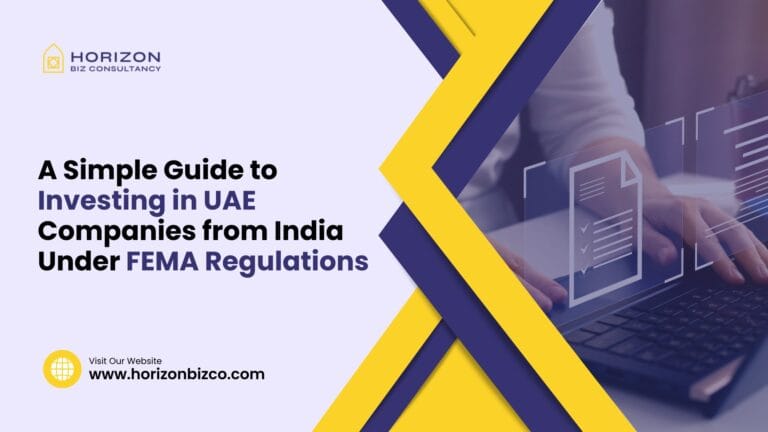India and the UAE share strong economic ties. Many business opportunities exist between them. But, as an Indian resident, you need to follow foreign exchange rules. They are under the Foreign Exchange Management Act (FEMA) for any cross-border investments. This guide will walk you through FEMA compliance in simple steps.
What is FEMA?
FEMA is an Indian law passed in 1999. It oversees foreign exchange transactions. This includes sending money abroad for investments or getting funds from overseas. The Reserve Bank of India (RBI) enforces FEMA regulations. FEMA aims to help trade between India and other nations. It also helps control India’s currency value in global markets. As an Indian resident, you must follow FEMA for international investments. This includes business dealings or money transfers.
Key Things to Know About FEMA and UAE Investments
RBI Approval:
Most small deals don’t require permission. But larger amounts or certain types may need RBI’s nod through an application process that could take time. Check FEMA rules to see if your investment amount qualifies under its “automatic route”.
Liberalised Remittance Scheme (LRS):
Indians can freely transfer up to $250,000 per year abroad including for business ventures using simple documentation under LRS. This is simpler than the RBI permission route for larger amounts.
Investment Structures:
Equity buying, joint ventures, subscribing to bonds etc. are allowed. Understanding FEMA’s treatment of each is vital for compliance.
Repatriating Funds:
Profits from exited investments must follow RBI rules for bringing money back to an Indian bank account. Import duties could additionally apply in some cases.
Popular Models for UAE Investments
Equity Participation:
Directly purchasing shares of private or listed UAE companies under the $250,000 LRS limit per year is permitted. Always research investment amount restrictions.
Joint Ventures:
Partnering with Emiratis to start a jointly-owned new company through forming subsidiaries or joint ventures in the UAE can work.
Subscribing to Bonds:
Indians can contribute to foreign corporate bonds or debt instruments without prior RBI approval under automatic route.
Always study investment structures thoroughly to fully grasp FEMA guidelines for each approach. Special economic zones usually have fewer regulations than mainland UAE investments.
Conclusion
With strong India-UAE business ties, many exciting opportunities exist across various industries for investors. Understanding basic FEMA guidelines makes legally investing in the UAE a simple process. Always seek expert help for compliance.
FAQs
A. Simply submit an online application and KYC docs like Form A2 to an authorized bank.
A. After taxes, profits can be repatriated to an Indian bank account via the designated bank dealer.
A. No, provided each payment is under $250,000 with appropriate documentation.
A. Prior RBI approval through an application is mandatory in this case.
A. Free zones such as DMCC and DAFZA welcome foreign capital with fewer regulations than mainland companies.






